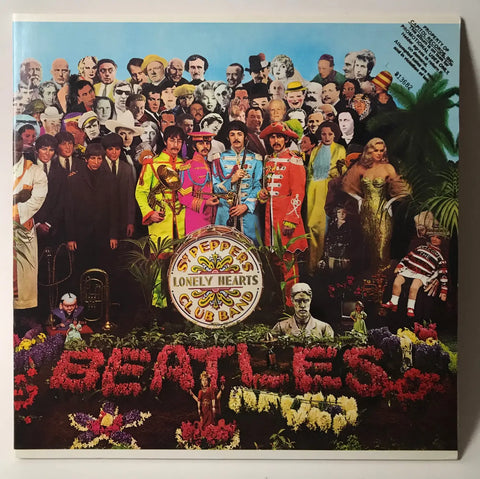Ever picked up a record, cassette or CD labeled “For Promotional Use Only -- Not For Resale” and wondered if it’s okay to buy or sell it? The answer, as was declared in the San Francisco-area Ninth Circuit Court of Appeals in 2011, is “yes” to both.
But the road to that answer was full of twists and turns, and at many times in the past the issue was mired in a tussle between consumers and record companies.

Not that some in the music industry didn’t happily reside in that grey area by selling promo copies. In a book he wrote about Lester Bangs, the music critic immortalized by Philip Seymour Hoffman in his portrayal of the scribe in 1997 film Almost Famous, music writer Jim DeRogatis reported that Bangs lived off the sale of promo copies between writing gigs.
Promotional-only records, often referred to as promo records or promo singles, have a rich history in the music industry. These records are distinct from commercially released albums or singles, as they are specifically created for promotional purposes. Typically, promotional records are distributed to radio stations, music journalists, and industry insiders to generate buzz and interest in an upcoming release.


The "promo only" stamp appeared in various spots on albums, here on the upper right. The language often varied between labels as well.
However, the distribution and sale of promotional records to the general public faced legal challenges over the years.
The concept of promotional records dates back to the early days of the recording industry when record labels sought innovative ways to market their artists and releases. The idea was simple yet effective – send out special copies of a song or album to key influencers who could help create a buzz around the music. This strategy proved successful in building anticipation and driving sales upon the official release.

Sometimes the LP label itself included promo copy and not for sale markings
Promotional records often feature unique characteristics that set them apart from their commercial counterparts. They may have special markings, labels, or packaging indicating their promotional nature. Some promo records also include exclusive tracks, remixes, or early versions of songs, making them collectible items for music enthusiasts.
While the primary purpose of promotional records is to generate publicity, issues arise when these records find their way into the hands of the general public. Record labels and artists have historically been concerned about the potential impact of unauthorized sales of promo records on their marketing strategies and revenue streams. This concern led to legal challenges aimed at preventing consumers from buying or selling promotional records.
One legal challenge that gained prominence occurred in the late 1970s when major record labels initiated lawsuits against retailers and individuals involved in the sale of promotional records. The labels argued that the distribution and sale of these records to the public violated copyright and contractual agreements. The legal battles focused on whether promo records were intended for sale and whether the recipients had the right to transfer ownership.
In many cases, record labels included explicit statements on promo records asserting that they were not for sale and that unauthorized distribution was prohibited. These statements were intended to establish legal grounds for pursuing those who attempted to profit from the sale of promotional material.

Another version of language on this 1986 promo cassette: "Sale Is Unlawful"
However, the legal landscape surrounding promotional records remained complex, and courts had to carefully consider the intentions of the record labels and the rights of the recipients.
In some instances along the way, courts ruled in favor of record labels, issuing injunctions against the sale of promotional records to the public. These rulings reinforced the notion that promo records were intended solely for promotional use and not for commercial distribution. However, legal challenges continued to emerge, and the issue persisted over the years.
The 2011 ruling that settled the issue came in the case of UMG (Universal Music Group) vs. Augusto (Troy Augusto—an eBay seller who bought promo copies and resold them on eBay). It brought clarity to the situation by rejecting UMG’s claim that they retained ownership of their promo copies even when they were in others' hands.
Also, as technology advanced, the landscape of music distribution changed significantly. With the rise of digital formats and the decline of physical media, the challenges related to promotional records evolved. Online platforms and file-sharing networks facilitated the unauthorized distribution of promotional material, prompting the industry to adapt its strategies for combating piracy and protecting promotional content in new emerging formats (ever heard of Napster?).
So, thanks to the good old Ninth Circuit Court of Appeals -- and something called "First Sale Doctrine" along with some other legal mumbo jumbo we'll spare you of by not covering here -- collectors can enjoy collecting promo copies, knowing that they are rarer than typical records, tapes, or CDs.
Check out our broad selection of vintage record, tapes, CDs, and MiniDiscs (yes, including many promo copies) here.
*Interested in more content like this? Subscribe to our free bi-weekly newsletter plus get a 15% discount code for music memorabilia from MusicGoldmine.com here.
Good old legal disclaimer: Nothing in this article is intended to provide legal advice.



